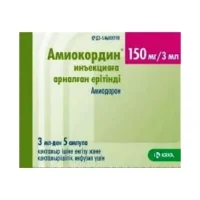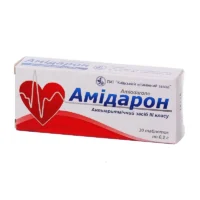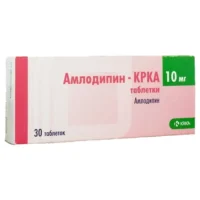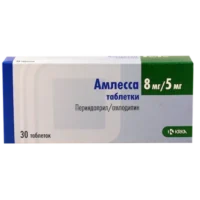Description
Lipodemin 10 (atorvastatin) Coated Tablets 10 mg. №30
Ingredients:
- Each tablet contains 10 mg of atorvastatin.
Dosage:
- The recommended dosage is one tablet daily. It is important to follow the instructions provided by your healthcare provider.
Indications:
- Lipodemin 10 is indicated for the treatment of high cholesterol. It helps lower the levels of bad cholesterol and triglycerides in the blood.
Contraindications:
- Do not take Lipodemin 10 if you are pregnant, breastfeeding, or have liver disease. Consult your doctor before starting this medication.
Directions:
- Swallow the tablet whole with a glass of water. It can be taken with or without food, but it is best to take it at the same time each day.
Scientific Evidence:
- Studies have shown that atorvastatin, the active ingredient in Lipodemin 10, effectively reduces LDL cholesterol levels. Research published in the Journal of the American Medical Association demonstrated a significant decrease in cardiovascular events with the use of atorvastatin.
Additional Information:
- It is important to inform your healthcare provider about all medications you are taking before starting Lipodemin 10. Regular monitoring of liver function tests is recommended while on this medication.
Atorvastatin, the main component of Lipodemin 10, works by inhibiting an enzyme in the liver that plays a key role in the production of cholesterol. By lowering cholesterol levels, it reduces the risk of heart disease and stroke. Additionally, atorvastatin has been shown to have anti-inflammatory properties that may contribute to its cardiovascular benefits.
Clinical trials have demonstrated the efficacy of atorvastatin in reducing the incidence of major cardiovascular events in patients with high cholesterol. A study published in the New England Journal of Medicine found that atorvastatin significantly reduced the risk of heart attacks and strokes in high-risk individuals. This evidence supports the use of Lipodemin 10 in the management of hypercholesterolemia and prevention of cardiovascular complications.





